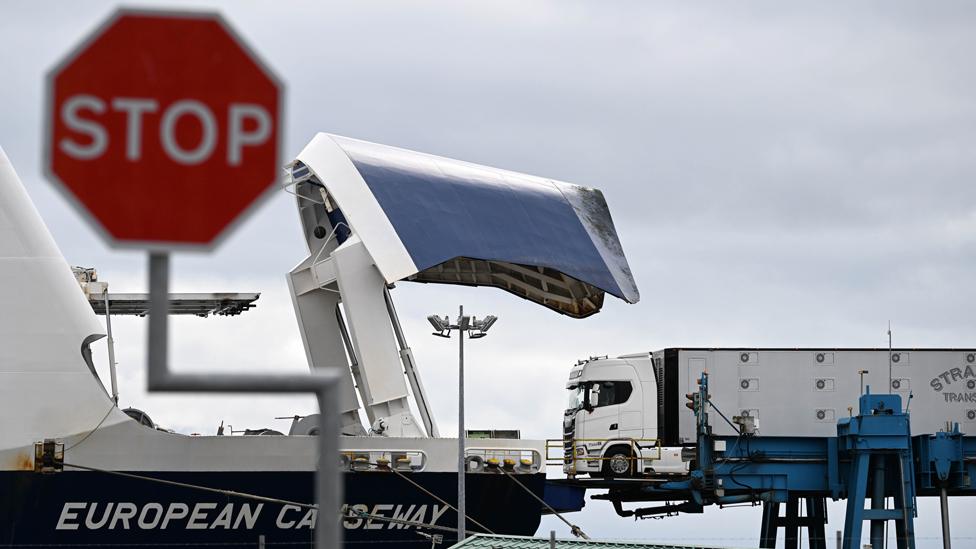Brexit deal: Both yes and no carry risks for DUP
- Published
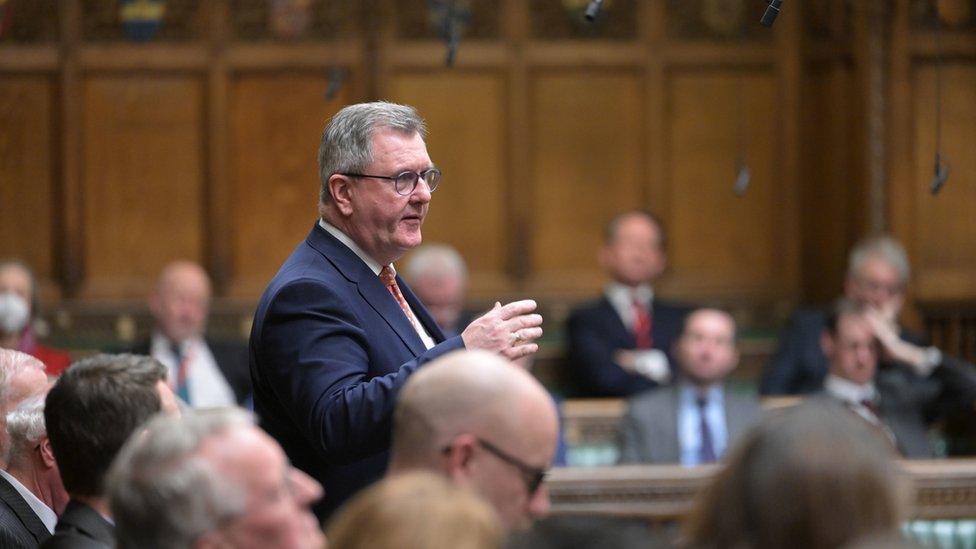
Sir Jeffrey Donaldson did not support or oppose the deal when he spoke in the Commons on Monday
We are now officially on DUP watch - waiting for Sir Jeffrey Donaldson to deliver his party's verdict on the Windsor Framework.
Already we have been warned not to expect a "hasty decision".
So strap yourself in - this could take a while.
The Democratic Unionist Party (DUP) is faced with two lanes and must decide which one to take.
One leads the party back to Stormont, while the other leads Northern Ireland into the political wilderness.
Both lanes are laced with dangers for Sir Jeffrey's party but he has a roadmap - the seven tests - to guide him.
Yes?
Let's take the lanes in turn.
The lane back to Stormont requires the DUP to say yes to the Windsor Framework.
To say yes to the new green and red lane solution which Prime Minister Rishi Sunak insists removes the Irish Sea border.
To say yes to a new "Stormont brake" which gives assembly members the power to object to EU law, which in turn could see the UK government blocking it.
To say yes to lots of other checks and paperwork being removed for the movement of plants and pets between Great Britain and Northern Ireland.
To say yes to the UK taking back control for setting VAT and tax breaks for Northern Ireland.
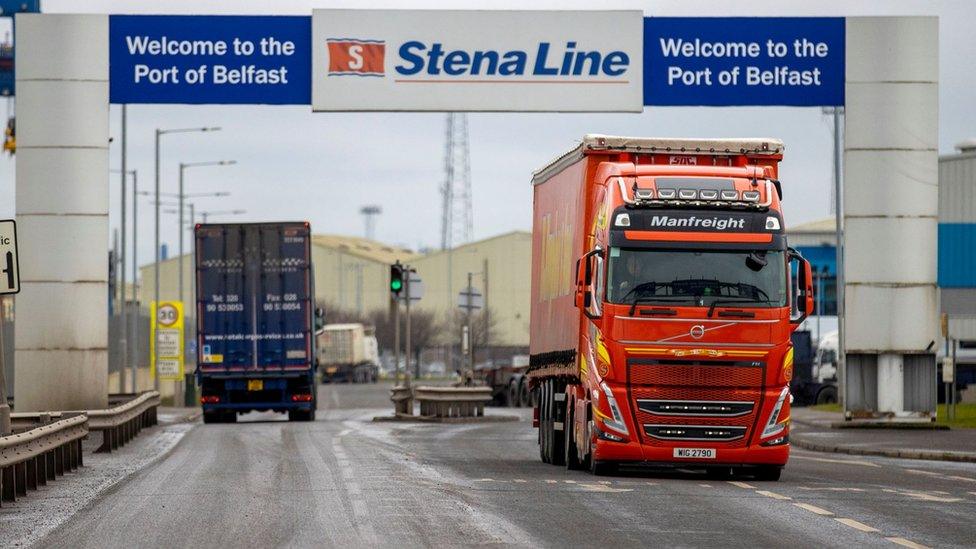
The new deal has been welcomed by some businesses
But the DUP would also be saying yes to the European Court of Justice retaining its jurisdiction over Northern Ireland.
To quote the EU Commission President Ursula von der Leyen it would remain as the "sole and ultimate arbiter" of EU law in Northern Ireland.
But the prize for saying yes to all of the above would see power sharing restored, with the executive returning to deal with health, education and the cost-of-living crisis.
It would also be welcomed by businesses who can see remedies to their protocol problems in the new Windsor Framework.
It may also open the door for a much needed financial package from Westminster to ease the mounting spending pressures.
No?
But saying yes to the deal could come at a cost for the DUP.
Critics of the framework - including some DUP MPs - have already dismissed it.
They argue goods travelling through the green lane and remaining in Northern Ireland will still require paperwork and be subject to spot checks.
For them, the Irish Sea border has been diluted but not ditched.
They have also dismissed the so-called "Stormont brake".
They argue it allows assembly members to put a veto in the hands of the government but it will be for London to decide if it uses it.
There are a host of in-built tests which also need to be met before a veto could be deployed.
So it is not as simple as 30 MLAs signing a piece of paper to block an EU law.
The continuing role of the ECJ in holding jurisdiction over Northern Ireland is also a problem for the DUP if it says yes to the Windsor Framework.
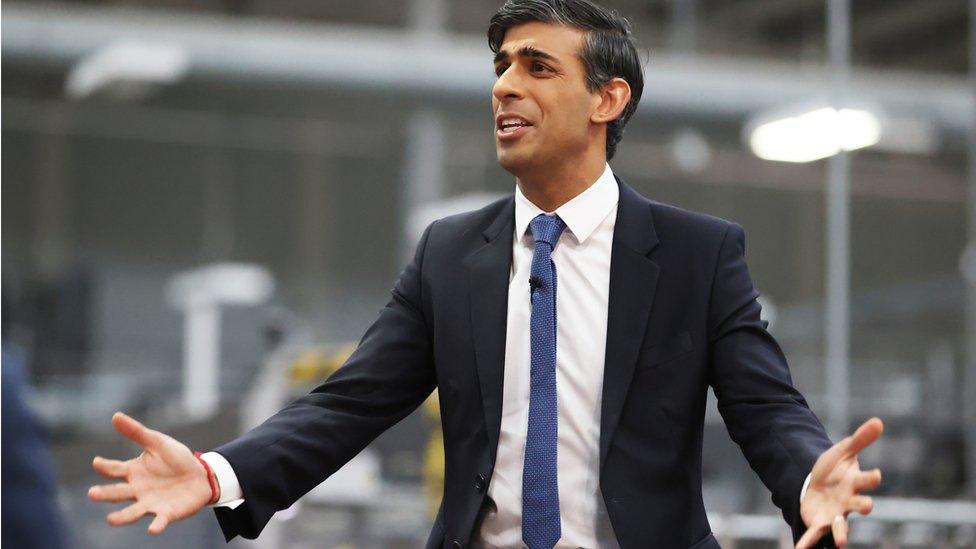
Rishi Sunak was in Northern Ireland on Tuesday to sell the new agreement
But not all the party's MPs are on the same page.
Sammy Wilson insists no EU law should apply in Northern Ireland, while his party leader says only EU law which allows businesses to trade in the EU single market should apply.
But Sir Jeffrey has warned any EU law which gets in the way of Northern Ireland trading within the UK market will not be tolerated.
So what are the risks for Sir Jeffrey if he opts for the other lane and says no to the deal?
If he says no that could see the UK and EU pushing ahead with the Windsor Framework without the DUP.
The prime minister will have the numbers to get it through Westminster if it goes to a vote.
But leaving the DUP behind could kill off any hope of Stormont returning, and that is a risk Mr Sunak may not be willing to take.
If Sir Jeffrey says no he may close down the last avenue back to Stormont.
The Windsor Framework is being pitched as a done deal, a take it or leave it moment for the DUP.
The controversial Protocol Bill has also been scrapped so there are few channels left to pursue.
If the DUP says no it will also feel the heat from businesses who support the framework and who want to see a return of stable government.
Other pressures too will mount, with a £500m hole in Stormont finances and permanent secretaries reluctant to make big changes in health and education.
There is no simple yes or no answer for the DUP.
Both outcomes carry risks.
The stakes for Sir Jeffrey Donaldson, his party and Northern Ireland could not be higher.
- Published28 February 2023
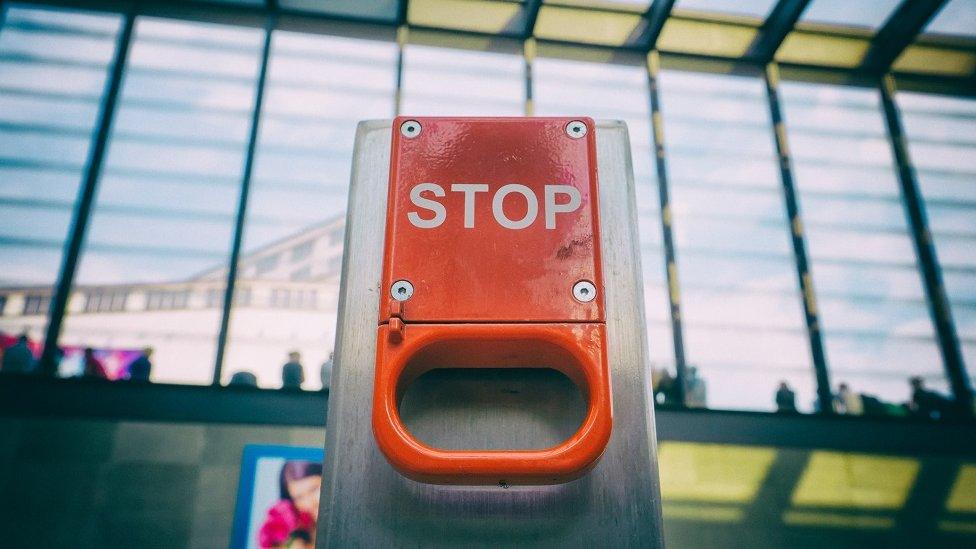
- Published28 February 2023
